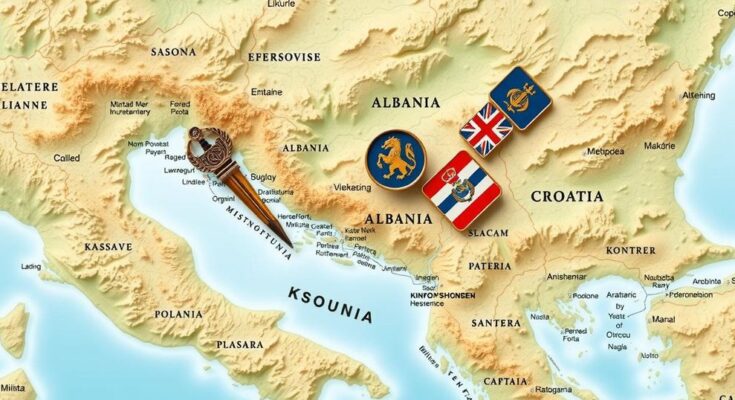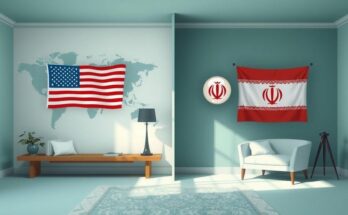A trilateral military alliance among Kosovo, Albania, and Croatia has generated controversy over its implications for regional stability and diplomatic relations, particularly with Serbia. While aimed at enhancing security cooperation, critics fear it may escalate political tensions and complicate reconciliation efforts in the Balkans.
The recent trilateral military alliance declaration among Kosovo, Albania, and Croatia has provoked substantial controversy in the Western Balkans. Concerns focus on its possible repercussions for regional stability, diplomatic relations, and the geopolitical dynamics within Southeast Europe. While supporters present the pact as a step towards enhanced security and regional peace, critics warn it may exacerbate political tensions, particularly with Serbia, hindering diplomatic reconciliation efforts.
The declaration emphasizes military cooperation on joint training exercises, cybersecurity coordination, rapid response capabilities, and defense procurement. Analysts suggest that this alliance is more than a technical agreement; it represents a significant political statement, particularly with Kosovo as its focal point. Kosovo’s history—having declared independence from Serbia in 2008 and not receiving recognition from Belgrade or various UN nations—complicates the creation of a formal military partnership with NATO members like Albania and Croatia, which some perceive as a geopolitical provocation.
Dr. Marko Ivković, a security analyst in Belgrade, remarked, “This alliance is not just about defence—it’s about redefining the regional balance of power. It sends a message that Kosovo is increasingly being treated as a de facto NATO partner, even if it is not formally recognised.” In response to the declaration, Serbian officials condemned the alliance, asserting it endangers regional peace and threatens the ongoing EU-facilitated discussions between Serbia and Kosovo. Serbian President Aleksandar Vučić labeled the move as “a dangerous escalation,” warning it could instigate a regional arms race.
Vučić stated, “This agreement does not contribute to peace—it isolates Serbia and fuels division,” during a televised address, asserting that Serbia will not remain passive while others alter the region’s security framework unilaterally. Furthermore, pro-government media in Serbia have speculated that this pact may lead to increased military integration between Albania and Kosovo, fostering fears surrounding a supposed “Greater Albania” agenda, despite denials from both Tirana and Pristina.
EU diplomats have also voiced concerns that the military agreement could obstruct Serbia’s EU accession prospects and stimulate nationalist rhetoric within the region. An EU official in Brussels expressed, “This type of military coordination needs to be carefully managed. Otherwise, it risks becoming another flashpoint in an already delicate geopolitical theatre.”
Within Kosovo, Albania, and Croatia, reactions vary. Albania and Kosovo view the pact as a significant achievement in regional cooperation and security. In contrast, some Croatian political factions have raised doubts about the advantages of strengthening military connections with Kosovo, referencing legal uncertainties and the potential to alienate Serbia, an essential trade partner.
In summary, the trilateral military alliance between Kosovo, Albania, and Croatia has incited significant debate concerning its implications for regional stability and diplomatic relations in the Western Balkans. While the alliance is intended to bolster security cooperation, it has drawn apprehensions of escalating tensions, particularly with Serbia. The diverse reactions from within the signatory nations highlight the complexities and potential ramifications that this military pact poses in an already sensitive geopolitical landscape.
Original Source: globalsouthworld.com




